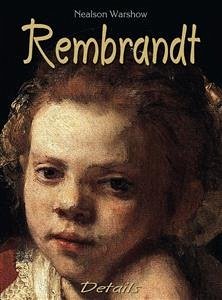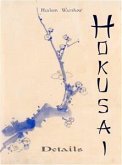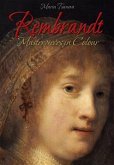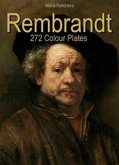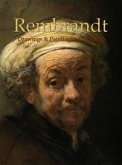This book contains 335 high-quality annotated reproductions with details of paintings, prints and drawings by Rembrandt van Rijn. Some people say that the "devil's in the details" and generally, they are right. Looking out for the small details in one picture or drawing is a good practice, since in most of the cases small but ultimately important details is the heart of a great author's idea. This title aims to help you see the details of Rembrandt's works; his secrets are not in his words, they are in his works. Look close up at his painting, prints and drawings, and that tell you what you cannot see but need to know and that should be enough. Rembrandt van Rijn is usually considered one of the greatest painters and printmakers in European art history and the most important in Dutch history. His contributions to art came in a period of great wealth and cultural achievement that historians call the Dutch Golden Age when Dutch Golden Age painting, although in many ways antithetical to the Baroque style that dominated Europe, was extremely prolific and innovative. His prints have similar subjects to his paintings, although the twenty-seven self-portraits are relatively more common, and portraits of other people less so. There are forty-six landscapes, mostly small, which largely set the course for the graphic treatment of landscape until the end of the 19th century. One third of his etchings are of religious subjects, many treated with a homely simplicity, whilst others are his most monumental prints. A few erotic, or just obscene, compositions have no equivalent in his paintings. He owned, until forced to sell it, a magnificent collection of prints by other artists, and many borrowings and influences in his work can be traced to artists as diverse as Mantegna, Raphael, Hercules Segers, and Giovanni Benedetto Castiglione. Experts estimate the dates of Rembrandt's drawings by studying his style the way he used his favorite media: red and black chalk, ink and quill or reed pen, brush and washes. How much has been lost as a result of negligence, ignorance, fire? Fifty per cent is a conservative estimate. By any count his output as a draughtsman was prodigious. He must have made drawings as readily as he breathed.
Bitte wählen Sie Ihr Anliegen aus.
Rechnungen
Retourenschein anfordern
Bestellstatus
Storno

